Eczema
What is Eczema? Manage Your Eczema with Expert Care at Dermatology Affiliates
Eczema, also known as dermatitis, is a widespread skin condition that causes inflammation, swelling, and irritation of the skin. Affecting up to 35 million Americans, eczema can be uncomfortable and sometimes lead to complications like infections, though it’s not considered dangerous.
At Dermatology Affiliates, our skin experts are here to provide personalized recommendations tailored to your specific symptoms and triggers. It's essential for those with eczema to work closely with a skincare provider to develop a comprehensive care plan that addresses your unique needs and helps manage the condition effectively.
With the right dermatological care and support, you can regain your skin confidence and take control of your eczema. Learn more about exzema below and let us help you find the best strategies to manage your skin and live more comfortably.
Examples of Eczema
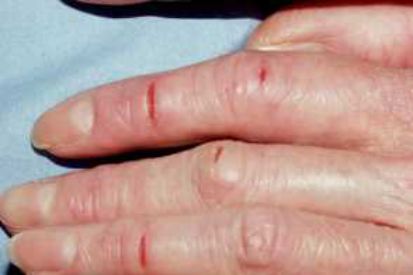
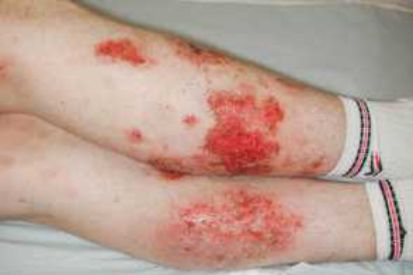
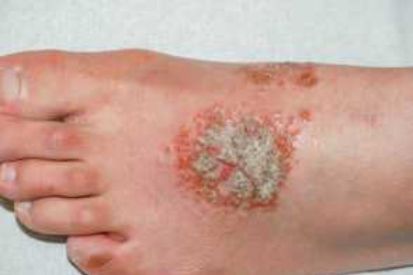
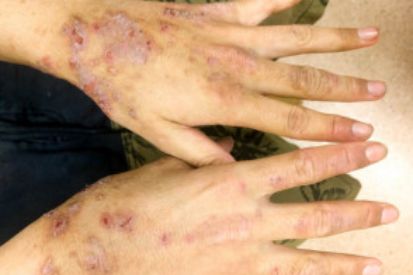
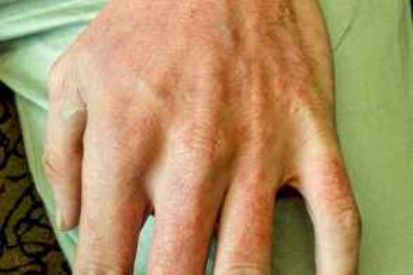

What are the symptoms of Eczema?
- Dry, sensitive skin.
- Intense itching.
- Red, inflamed skin.
- Recurring rash.
- Scaly areas.
- Rough, leathery patches.
- Oozing or crusting.
- Areas of swelling.
Causes of Eczema
- Specific gene variations can affect the skin's ability to provide an effective barrier against irritants and allergens.
- Exposure to certain irritants or allergens, such as harsh soaps, detergents, fragrances, and certain fabrics.
- Your immune system may overreact to certain substances, leading to inflammation and skin irritation.
How to Prevent Eczema
- Gentle skincare and cleansers.
- Avoiding hot baths and tight clothing.
- Seeking medical advice from a dermatologist.
Eczema FAQs
Eczema flare-ups can be triggered by allergens, irritants, environmental factors, stress, and even changes in temperature or humidity. Additionally, certain skincare products, soaps, and detergents, as well as emotional stress or anxiety, can contribute to the worsening of symptoms. Recognizing and managing these triggers is essential for controlling flare-ups and maintaining healthy skin.
Eczema is a non-contagious skin condition, meaning it cannot be spread to others.
Yes, eczema can affect people at any stage of life, from infants to older adults. It often begins in childhood but can develop or persist into adulthood. Regardless of age, eczema can cause discomfort and require ongoing management to keep symptoms under control.
Although eczema cannot be cured, it can be effectively managed with the right treatment and lifestyle adjustments. By using prescribed medications, adopting a skincare routine tailored to sensitive skin, and avoiding known triggers, many people with eczema can significantly reduce flare-ups and maintain healthier skin. Regular consultation with a dermatologist can also help in finding the most effective strategies for long-term management.
Gentle skincare routines, like using mild, fragrance-free soaps, avoiding hot water, and consistently applying rich moisturizers, can significantly alleviate eczema symptoms. It’s also beneficial to choose products specifically designed for sensitive skin, limit exposure to harsh chemicals, and pat the skin dry gently after bathing. Regularly moisturizing immediately after bathing helps lock in moisture, keeping the skin hydrated and reducing the likelihood of flare-ups.
Dermatologists play a crucial role in managing eczema. They diagnose eczema accurately by assessing medical history and symptoms, and they create individualized treatment plans. These plans often include skincare routines, medications like corticosteroids or antihistamines, and advice on avoiding triggers and making lifestyle changes. Dermatologists also monitor progress, provide advanced therapies for severe cases, and help prevent complications such as infections.
From our QualDerm Family of Brands: Eczema Symptoms
How to Treat Eczema
Dermatologists offer specialized care to manage eczema symptoms and improve the quality of life for individuals with this chronic skin condition. Treatments commonly include:
- Prescription Medications: Dermatologists may prescribe topical corticosteroids or non-steroidal anti-inflammatory creams to alleviate inflammation and itching.
- Topical Medications: These medications help modulate the immune response, reducing inflammation in the affected skin areas.
- Systemic Medications: In severe cases, oral or injectable medications may be recommended to address widespread or persistent symptoms.
Your dermatologist can offer invaluable education on skincare practices, lifestyle modifications, and preventive measures, empowering you manage their eczema more effectively. Regain your confidence and build on your healthy skin journey by scheduling an appointment with one of our providers.
Featured Blogs
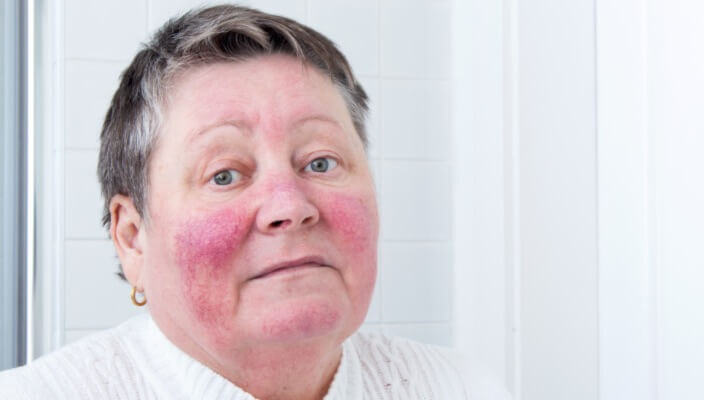
- General Dermatology
- Chronic Skin Conditions
Your dermatologist or dermatology PA can help you treat your rosacea and reverse the damage it has caused.
Read More
- General Dermatology
- Sun Safety
- Skin Care
Earlier in May, a pilot study was published that showed high concentrations of 4 chemical sunscreens in the blood. This study was done over 7 days with 24 people using different mixtures of chemical sunscreens in spray, lotion, or cream forms.This was a small study to see if there was reason to really study absorption through the skin.
Read More
- Skin Cancer
- General Dermatology
- Sun Safety
A person will get sunburned from spending time outside without sunscreen and sun-protective clothing. Read to learn more about the dangerous effects of sunburn.
Read MoreFeatured Products
Check your local office for current stock!
Check your local office for current stock!


